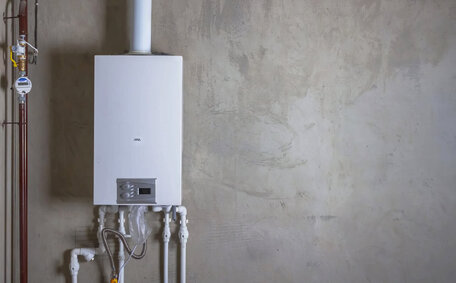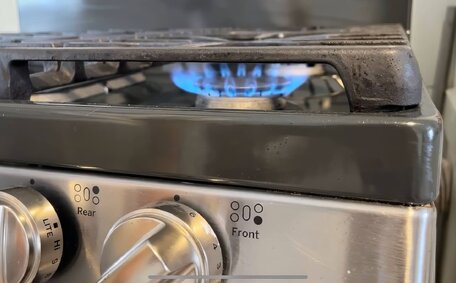Introducing baking soda and vinegar
Cleaning baking soda, also known as sodium bicarbonate, and vinegar, which contains acetic acid, are common household items found in most kitchens. This article delves into whether the combination of vinegar and baking soda provides an effective DIY solution to common plumbing issues like blockages.
We’ll investigate the chemical reactions and properties that occur when combining baking soda and vinegar. We’ll guide you on the correct quantities and methods for using baking soda and vinegar in your pipes and drains. Myths regarding baking soda and vinegar for plumbing will be debunked.
Using vinegar can be beneficial for cleaning pipes with minor blockages that don’t need high pH level interventions, though it’s not a universal fix. We’ll outline when baking soda vinegar can and shouldn’t be used, as water stains, for example, may require professional attention.
How baking soda and vinegar can help with plumbing issues
Vinegar, when used with baking soda, is useful for addressing minor clogs and buildup. This is due to the chemical reactions that occur when they are combined.
When baking soda (sodium bicarbonate) and vinegar (acetic acid) are mixed, carbonic acid forms, which decomposes to produce carbon dioxide gas, water, and sodium acetate. As the carbon dioxide gas expands and fizzes, vinegar baking soda can help dissolve mild blockages and break up accumulations of hair, soap scum, and other gunk in pipes and drains.
For best results, quickly pour one cup of baking soda followed by an equal amount of vinegar down the drain to trigger the chemical reaction. Stubborn blockages are unlikely to be affected by simply adding more vinegar to baking soda. A balanced ratio mixes one cup of baking soda with an equal amount of vinegar.
Although the baking soda and vinegar mix can address minor problems, its effectiveness has limits. Severe clogs and blockages can also often require a professional plumber with high powered equipment. For an initial home remedy to small blockages, the mixture of vinegar and baking soda can sometimes help.
Using baking soda and vinegar to clear clogs
Below is a detailed guide on using a baking soda and vinegar mixture effectively to clear minor drain blockages:
- Start by pouring 2 tablespoons of baking soda into the obstructed drain.
- Slowly pour vinegar after the baking soda and observe the vigorous fizzing as they react.
- Cover the drain and add a cup of vinegar, letting the fizzing action work for several minutes to dislodge debris.
- Then rinse the drain with warm water, followed by soda water to help clear any remaining residue.
Key considerations for the safe and effective way to add baking soda and vinegar to your cleaning regimen include:
- Wear gloves and protective eyewear when using baking soda to help lift stains and clean your drains.
- Avoid combining other drain cleaners with baking soda and vinegar.
- Try this method twice at most - if the clog persists, call a professional plumber.
- This method should not be applied to severe blockages or main sewer lines.
While the baking soda clean method can address and dislodge minor clogs, it has limits. The pressure from the chemical reaction is modest, making it unlikely to remove very stubborn obstructions. Professional drain cleaning equipment is designed to cut through and is far more powerful and reliable for your clean toilet ventures and tackling stubborn toilet bowl to get rid of drain clogs.
Learn about baking soda and its cleaning effectiveness, which, when used monthly, can maintain clear drains and preempt significant blockages. But it offers more than just a home remedy; knowing when to call a professional is essential.
Other household uses for baking soda and vinegar
While baking soda and vinegar are useful for minor plumbing issues, they also have a variety of cleaning applications around your home:
- To address spills in the kitchen or bathroom sink, wipe down and turn clean baking soda into a paste with a little water for scrubbing. Sprinkle mix baking soda on, give it a vigorous scrub, then spray vinegar and the soda solution for a comprehensive clean. Let sit few minutes before carefully rinsing away the residue.
- To keep your washing machine cleaning effectively, boost its vinegar cleaning power by adding a cup white vinegar, coupled with a half cup of baking soda alongside your laundry detergent, to quash odours and freshen up. This also works wonders to clean your kitchen textiles, with distilled white vinegar in the wash acting as a natural softener against limescale.
- To achieve a vinegar clean effect, unclog gas stove ports by mixing baking soda and vinegar in equal parts. Fill your spray bottle with vinegar water and use it to douse the shower head, securing it overnight before a thorough rinse.
- Dispense baking soda to rejuvenate foul-smelling footwear, thereby make your own household zones soda clean, making kitchens and living areas much more inviting.
- Into a spray bottle, integrate one tablespoon baking soda with water, fabricating a purifying blend apt for revitalizing your oven surfaces.
Using each ingredient alone or together becomes more effective by allowing time to work and applying mechanical action to enhance their effectiveness. On their own, baking soda and vinegar are not disinfectants. Though suitable for green cleaning, hydrogen peroxide may be necessary for extremely dirty or germ-ridden areas.
When to call a professional plumber
While baking soda and vinegar are useful for minor plumbing issues, certain situations necessitate calling a professional plumber.
If your drain remains completely blocked after several attempts with baking soda and vinegar, you may be dealing with a significant obstruction requiring mechanical removal. Persistent clogs unaffected by at-home solutions suggest a more serious underlying problem.
If you suspect a larger issue like a broken pipe, damaged drain line, or flooding originating from underground leaks, immediate professional help is needed. DIY chemical approaches are not equipped to address extensive infrastructure problems.
Call a professional immediately if you lack hot water, suspect a gas leak, or if sewage is backing up into your home, as these scenarios require urgent attention.
At Glenhaven Plumbing, our licenced, fully insured plumbers have the high-powered equipment, in-depth training, and years of expertise to tackle complex plumbing troubles that everyday household products simply cannot fix.
We understand Sydney’s intricate plumbing systems with half cup baking soda usages and codes inside out. We can accurately diagnose issues in your pipes and drains, provide complete solutions for repair and replacement, and ensure problems are fully rectified so they don’t recur.
While DIY solutions may seem cost-effective initially, tackling major plumbing issues on your own can exacerbate problems, leading to costlier repairs later. Safeguard your home with our expert services.
For dependable, long-term solutions to sophisticated plumbing issues, contact Glenhaven Plumbing at 1300 349 338 or email us to schedule an appointment with our experienced, local technicians.
Contact Glenhaven Plumbing for help
At Glenhaven Plumbing, we’re the local experts to call when baking soda and vinegar solutions are insufficient for your plumbing needs. Our fully licenced technicians have years of experience tackling complex clogs, pipe damage, hot water system issues, and drainage problems that often require professional equipment.
We use state-of-the-art plumbing inspection cameras and high-powered hydro jet drain cleaners to clear even more stubborn obstructions effectively.
For expert assessment and assured results, contact Glenhaven Plumbing at 1300 349 338, or email us to book an appointment. We service all of Sydney with transparent, upfront pricing and detailed solutions.
Avoid worsening issues with DIY attempts - our qualified technicians can resolve problems correctly the first time, preventing costly future repairs. Rely on Glenhaven Plumbing to expertly restore plumbing and drainage with the most up-to-date techniques and equipment.





